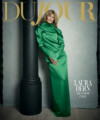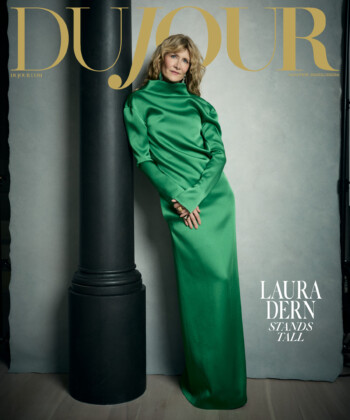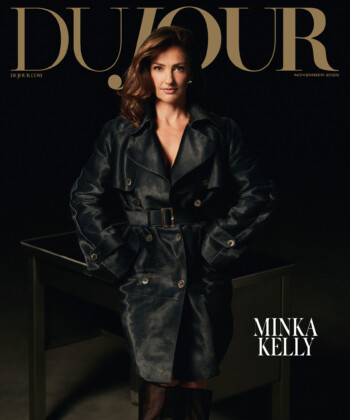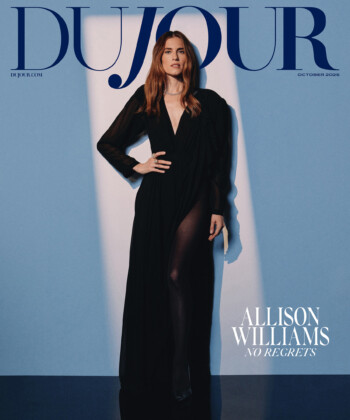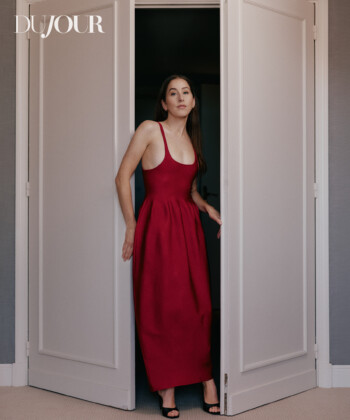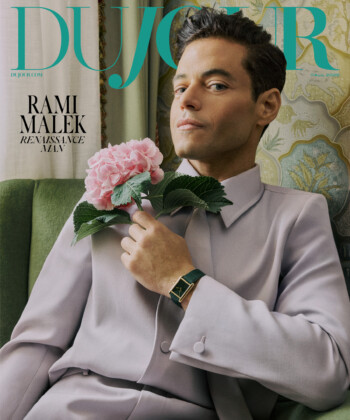In Indignation, the new film from director (and accomplished screenwriter) James Schamus, a young man leaves behind his New Jersey roots to attend college in Ohio. And while this move brings about an intense bit of self-discovery, perhaps more important is his discovery of another student: the beautiful, troubled, beguiling Olivia Hutton, played by Sarah Gadon. Here, Gadon explains the charm of the complex role and the surprising poetry she read to prepare for it.
Indignation is an adaptation of a Philip Roth novel—one of a number coming out this year. Are you a Roth fan?
I am a Philip Roth fan! I think it’s really interesting to do an adaptation of his work, because there are people who are either a fan or not, there’s no in between with Roth! But what James [Schamus, the director] did in this adaptation that was really interesting is he really opened up Olivia’s perspective, and he really challenged the audience to question history and to question the perspectives by which it was told. My favorite part of the film was the opening, which doesn’t actually exist in the book, and it’s Olivia in an old-age home. I think James purposefully did that to challenge the book, and that can be really interesting, to do an adaptation where the film is directly in dialogue with the source material. I really liked that.
Is that part of what brought you to the film?
I’ve had really had a diverse career. I’ve worked in Canada and a lot in Europe, and at the end of last year I kind of knew that I wanted to focus on some projects that were American. When this project came my way, I was really excited by it because James Schamus is really a pillar of American independent cinema, and I knew it would be surrounded my magic because he is a magical person. I also felt like he was dealing with such a matter that was very near and dear to him, Philip Roth, and his perspective and I thought that the character of Olivia was just so complex. I fell in love with both her and Marcus.
She’s certainly complex. How did you prepare to play a character who’s got so much going on—and explores so much of that in her time on screen?
James is a professor, so he is studious in his approach to filmmaking, and especially in the stages of prep. He gave me a lot of material and insight into the character, and I think that the thing that I held on to the most, and what resonated with me the most was the idea that Olivia Hutton was very much based on Sylvia Plath, and that James had always felt that Philip Roth had always been influenced by her and her life and her writing when he was writing this novel. So, for me, it was a really great way in because I could go back into her work, which I hadn’t had a chance to revisit since University. I read her journals and I read her poetry, I read The Bell Jar again, and it was a wonderful insight into what it meant to be an outsider as a woman at that time.
The time is really important. The film really evokes a midcentury melancholy. Were you aware of that when you were making the movie?
Absolutely! It’s such an interesting time in American history and for American culture, with so many layers of tension. For me, there was something voyeuristic about doing a period piece because I could research and really dive into the period from so many different angles.
There are definitely moments of humor, but it’s not a light film. What do you do, when the director calls cut, to keep from having to lurk in these dark spaces all the time? How do you spend your off time?
You know, it sounds odd to say it about the film, but Logan and I had a lot of fun working together. We shot it last summer in New York, he came from L.A. and I came from Toronto, and there’s just so much culture happening constantly in New York, and the two of us would go to the theater or go to dinner and just decompress.
Are you taking the summer off or is there something coming up next for you?
I’m going back to work, it’s my busy season now! I’m gonna do Xavier Dolan’s next film, John Donovan. I’m such a fan of his and so happy to be a part of the movie. I always try to force my way into French-Canadians’, first English-language films. It’s a niche corner of the market that I’m cornering, that’s for sure.





















